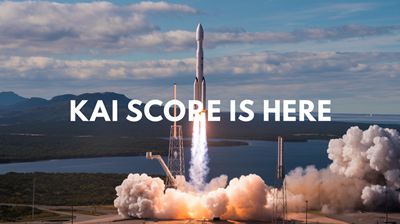MarketLens
LIT ETF: Is It the Best Way to Invest in Lithium and Battery Tech?
The Global X Lithium & Battery Tech ETF (LIT) offers a compelling investment opportunity in the burgeoning lithium market, driven by the global push towards electrification and renewable energy. This report analyzes LIT’s top holdings, evaluates the long-term prospects of the ETF, and provides actionable insights for potential investors.
Introduction
Top Holdings in LIT
As of August 2024, the top holdings in the LIT ETF include:
- Albemarle Corporation (ALB): With a 9% allocation, Albemarle is a leading player in the lithium market, boasting a market capitalization of $14.6 billion and an enterprise value of $18.2 billion.
- Sociedad Quimica y Minera de Chile (SQM): SQM has a market cap of $13.4 billion and an enterprise value of $15.6 billion, making it a significant contributor to the ETF.
- Mineral Resources Limited (MALRY): This company has a market cap of $9.9 billion and an enterprise value of $12.1 billion.
- Ganfeng Lithium Group Co., Ltd. (GNENF): With a market cap of $8.7 billion and an enterprise value of $11.1 billion, Ganfeng is a key player in the lithium market.
- Pilbara Minerals Limited (PILBF): Pilbara Minerals has a market cap of $7.5 billion and an enterprise value of $6.5 billion.
- Arcadium Lithium PLC (ALTM): This company has a market cap of $4.8 billion and an enterprise value of $5.0 billion.
- Sigma Lithium Corporation (SGML): Sigma Lithium has a market cap of $1.7 billion and an enterprise value of $1.7 billion.
These companies represent a diverse portfolio of significant players in the lithium market, each contributing to the ETF’s overall performance.
Long-Term Future for LIT
Demand Surge and Supply Deficit
The long-term outlook for lithium investments is overwhelmingly positive, driven by a projected sevenfold increase in lithium demand between 2020 and 2030. This surge is primarily fueled by the rapid adoption of EVs and the expansion of battery energy storage systems (BESS). China alone is expected to see a 20% yearly increase in lithium demand over the next decade.
However, this burgeoning demand is juxtaposed with a looming supply deficit. Current production levels are insufficient to meet future demand, with a forecasted supply shortage beginning as early as 2025. The limited number of lithium mines globally and reduced investments in future supply due to historically low prices exacerbate this issue.
Investment Trends and Value Chain Opportunities
Record investments are flowing into the lithium sector, with specialized lithium miners reinvesting approximately 60% of their earnings, compared to 25% for diversified miners. Major automakers, including Tesla, General Motors, and VW Group, are securing long-term agreements with lithium producers and investing directly in mining companies to ensure a stable supply chain.
The lithium battery industry is projected to generate $400 billion in annual revenue opportunities worldwide, with production margins potentially reaching 65%. Despite underperformance in 2024, lithium miners are well-positioned for recovery, especially if prices rebound from their currently low levels.
Market Dynamics and Potential Surplus
Despite the optimistic demand projections, the lithium market faces potential oversupply challenges. Following a price boom in 2022 and 2023, significant investments have led to strong growth in lithium chemicals supply. This growth is expected to slow, leading to a forecasted market surplus of over 436,000 tonnes of lithium carbonate equivalent (kt LCE) by 2026, representing 26% of demand.
Battery-grade lithium carbonate is expected to experience a minor surplus in 2026 and 2027, while battery-grade lithium hydroxide will face a slight deficit. Producers may increase working inventories, while buyers might adopt a ‘just-in-time’ procurement strategy to manage the surplus.
Performance Analysis of LIT
As of the latest data, LIT is trading at USD 36.38, with a slight increase of 0.02 (0.06% change). The Relative Strength Indicator (RSI) is at 31, indicating that the ETF is in a neutral position and likely at or near its support level, suggesting it is oversold. The implied volatility is at 28.78%, reflecting the market’s expectations for high price swings in either direction.
Predicted Price Movements
The after-hype prediction price is USD 36.45, indicating a potential increase based on media hype and investor sentiment. The options market suggests an average daily price movement of about 1.8%, translating to approximately USD 0.65. The intrinsic value estimates range from a low of USD 35.71 to a high of USD 38.89, with Bollinger Bands indicating a lower band of USD 34.94 and an upper band of USD 44.67.
Implications for Stakeholders
Investors
For investors, LIT presents a balanced risk-reward profile. The ETF’s diversified holdings in leading lithium producers and battery manufacturers provide exposure to the entire lithium value chain. While short-term volatility and potential oversupply pose risks, the long-term demand for lithium driven by EV adoption and energy storage solutions offers substantial growth potential.
Lithium Producers
Lithium producers must navigate the delicate balance between ramping up production to meet future demand and managing potential oversupply. Strategic partnerships with automakers and investments in sustainable mining practices will be crucial for maintaining profitability and market share.
Policymakers
Policymakers need to address supply chain bottlenecks and support the development of new lithium mining projects. Incentives for sustainable mining practices and investments in recycling technologies can help mitigate the environmental impact of lithium extraction and ensure a stable supply for the growing EV market.
Actionable Insights and Recommendations
- Diversify Investments: Investors should consider diversifying their portfolios within the lithium sector to mitigate risks associated with individual companies. LIT offers a diversified exposure to leading lithium producers and battery manufacturers, making it an attractive option.
- Monitor Market Trends: Keeping a close eye on market trends, including supply-demand dynamics and technological advancements in battery technology, will be crucial for making informed investment decisions.
- Invest in Sustainable Practices: Companies should invest in sustainable mining practices and recycling technologies to address environmental concerns and ensure long-term viability. Policymakers can support these efforts through incentives and regulatory frameworks.
- Strategic Partnerships: Lithium producers should seek strategic partnerships with automakers and battery manufacturers to secure long-term supply agreements and stabilize revenue streams.
- Adapt to Market Conditions: Flexibility in production and inventory management will be essential for navigating potential oversupply scenarios. Companies should be prepared to adjust production levels and explore options for reprocessing technical-grade lithium into battery-grade materials.
Conclusion
The Global X Lithium & Battery Tech ETF (LIT) is well-positioned to capitalize on the growing demand for lithium driven by the electrification of transportation and the expansion of renewable energy storage solutions. While short-term challenges such as potential oversupply and market volatility exist, the long-term outlook for lithium investments remains robust. By diversifying investments, monitoring market trends, and investing in sustainable practices, stakeholders can navigate the evolving lithium market and seize the opportunities presented by the global energy transition.
Related Articles
Category
You may also like
No related articles available
Breaking News
View All →No topics available at the moment






